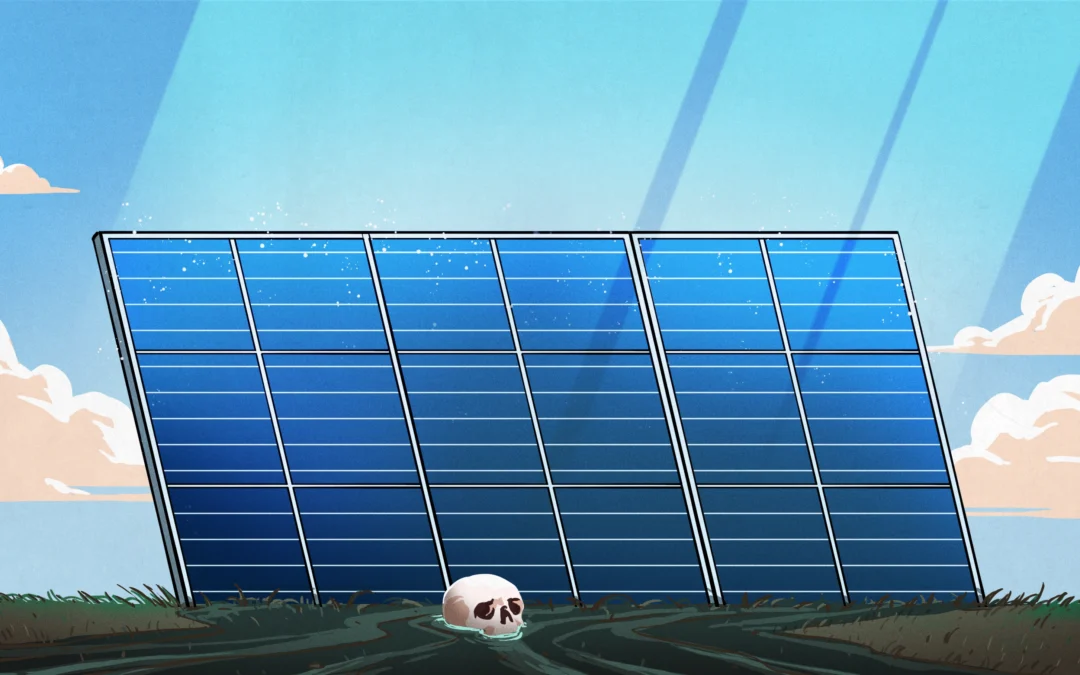Government incentives and falling prices for solar technology have also likely contributed to the growth of the industry. For these reasons, solar companies target home and business owners through door-to-door sales techniques, cold calls, or advertising that is simply too good to be true in the name of saving the environment. Many times the salespersons that target your neighborhoods seem well-informed and even charming. They are also well trained to earn your trust, which is a huge tool in their sales pitches. These salesmen tend to make guarantees that they are unable to keep such as panels at no cost, free installations, reduced energy expenses, and minimal maintenance. All these promises and schemes then lead their “customers” into a legal trap contained within a contract constrained within an iPad, tablet, or rarely, paperwork.
Signing the contracts presented by solar companies is a risk that leads many in a path towards unforeseen debt, payments, and overall disappointment. Our Firm has been seeing a rise in fraud as government subsidies for these businesses increase. One tactic typically used by solar company salesmen is the utilization of e-signing in their pitches and closing of solar panel installation deals. E-signing may seem simple and harmless in the moment; however, solar companies often copy and paste E-signatures to other parts of the contract or even other contracts/agreements entirely. Commonly, E-signing may also lead to your credit being accessed without your knowledge or consent as solar companies often use these credit reports to determine your financial status for financing purposes. Credit reports accessed without permission could be a violation to the consumer’s rights under the Fair Credit Reporting Act (FCRA). For these reasons, before signing any documentation, ask for a copy for yourself to read on your own time or for your lawyer to read and review.
Solar panel salesmen tend to make an abundance of promises and verbal commitments that are very seldom rooted in honesty and are rarely actually done for their customers. For example, solar panel salesmen may claim that the panels are “free.” In most cases however, this is far from the truth. In fact, the solar panels may cost more than $20,000 and leave you bound in a contract that can range from 10-20 years. In Florida v. Smart Solar LLC (2018), a case involving two Florida-based companies—Smart Solar LLC and Smart Roofs LLC— which were accused of deceptive advertising and marketing practices related to their solar panel installation services. The Florida Attorney General alleged that the companies misled homeowners with promises of low-cost solar energy systems that would save them money. Cases such Michael Calta, v. VISION SOLAR FL, LLC and FLOYD STEVE BALES, v. BRIGHT SOLAR MARKETING LLC only further demonstrate the deceptive behaviors by solar panel companies by misleading customers about the cost savings and other benefits of switching to solar energy. Both of these cases involve customers entering into contracts with a solar panel companies to install solar panels on their property that led to customers paying substantial deposits. In both cases, the companies failed to complete the installations and failed to refund the deposits.
The customers sued the company for breach of contract and were awarded damages. There may also be claims under FDUPTA, Florida’s Deceptive and Unfair Trade Practices Act (FDUTPA) was passed by the Florida Legislature in 1973, and was designed as a state law complement to the Federal Trade Commission Act. 15 U.S.C. § 45. FDUTPA, sometimes referred to as the “Little FTC Act,” provides private remedies based on consumer protection law, which encompasses unfair, deceptive, and unconscionable acts or practices. This article, shows just a glimpse of the causes of action available to consumers who have been taken advantage of. Arbitration clauses are another deterrent for attorneys, so make sure you have an attorney well-versed in arbitration, or one who knows how to get around these nasty little contract clauses.
Another common promise made is that panels will be installed by professionals within a short amount of time, ranging between 3-6 weeks. What has become clear, however, is that solar salesmen are simply pitching a service that their company cannot follow through on. Many times, the finance company and the contractor have a joint venture together. Particularly in Florida, many complaints have arisen regarding solar panel companies stalling, improperly installing panels, and even not installing the panels at all. These negligent, deceptive, and fraudulent acts are all committed. Vendors may disregard the various city laws and codes that they are required to heed.
Solar panel companies may even engage in deceptive behavior without even reaching your front door. The Telephone Consumer Protection Act was enacted to address telephone marketing calls and certain telemarketing practices. Solar panel companies often violate the Telephone Consumer Protection Act (TCPA) by making calls or sending texts to individuals without their prior express consent. This includes unsolicited calls or texts to cell phones or landlines. Additionally, the TCPA prohibits companies from using an automated dialing system, pre-recorded messages, or other automated technology to make calls or send texts. Companies that violate the TCPA may face civil penalties, including fines and damages. In Smith v. Vision Solar LLC and Dudley v. Vision Solar, LLC, clear use of automated calls and solicitation calls relating to solar energy on their cellular phones despite being registered on the Federal Trade Commission’s (“FTC’s”) Do Not Call Registry. If you receive a phone call from a solar panel company, be sure to consult with an attorney and or receive documentation to review before agreeing to sign or verbally agree to any agreement.
If you find that a solar panel salesman has visited your home and business, it is in your best interest to read the contract in its entirety before signing any documentation. Seek advice from an attorney who can review any and all documents before you sign. If you are a homeowner or businessowner seeking legal advice regarding any solar panel transaction, please reach out to The Joshua S. Horton Law Firm, PA. Attorney Horton is not only trained to identify possible misleading, fraudulent and deceptive undertakings, but to fight against any fraudulent acts committed by solar companies.

